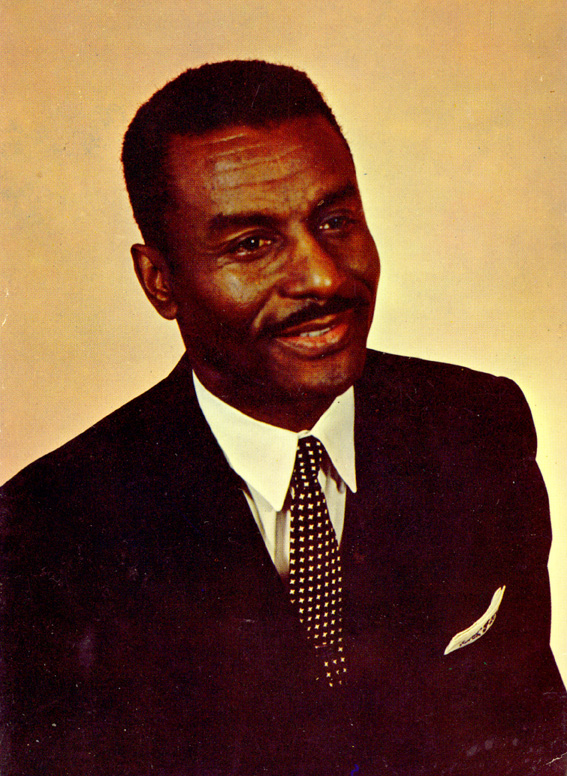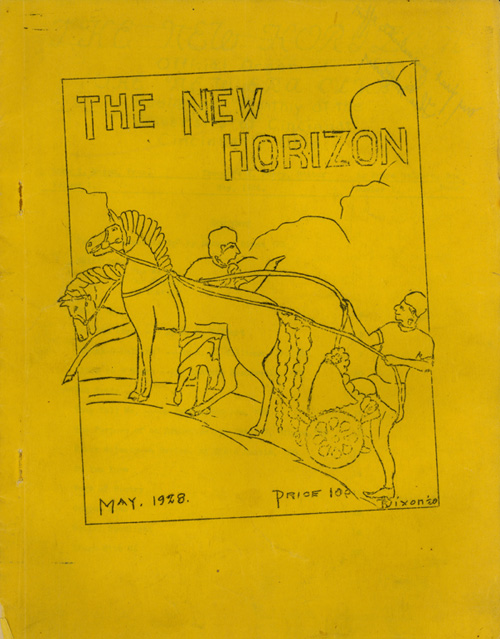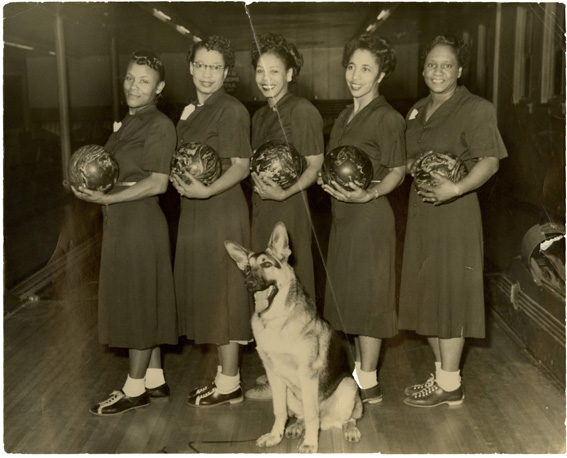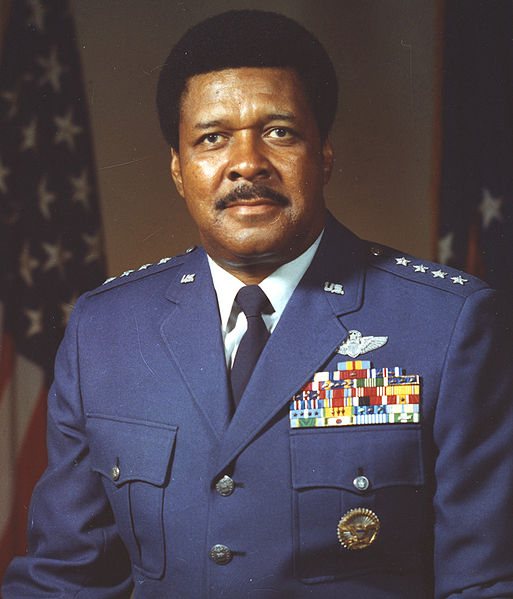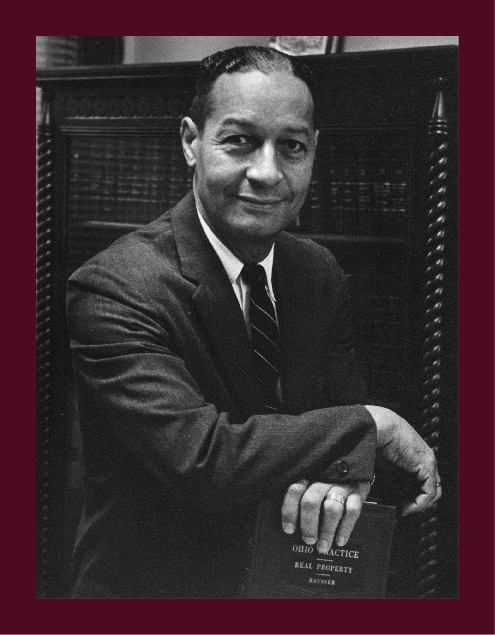 In observance of the 50th anniversary of the signing of the Civil Rights Act, UC Libraries have created a display on the 4th floor of Blegen Library celebrating the papers of Theodore M. Berry, noted Civil Rights pioneer, community activist, and elected official from Cincinnati. Ted Berry’s papers represent one of the notable collections in the Archives & Rare Books Library’s Urban Studies Collection.
In observance of the 50th anniversary of the signing of the Civil Rights Act, UC Libraries have created a display on the 4th floor of Blegen Library celebrating the papers of Theodore M. Berry, noted Civil Rights pioneer, community activist, and elected official from Cincinnati. Ted Berry’s papers represent one of the notable collections in the Archives & Rare Books Library’s Urban Studies Collection.
Tag Archives: Berry Project
Celebrating Black History Month-Cincinnati's Ted Berry
By: Kevin Grace
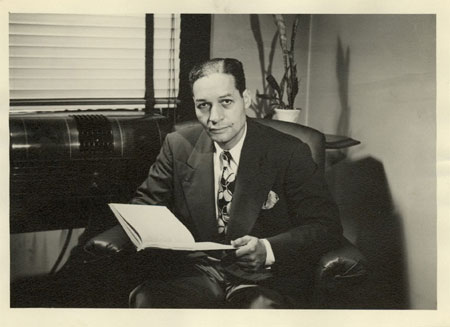 With a grant awarded by the National Archives and Records Administration a few years ago, we were able to process our Theodore M. Berry Papers, a collection of nearly 200 boxes that documented the life and career of Ted Berry, UC alum, first African-American mayor of Cincinnati, and a national figure in the Civil Rights Movement. Communities around the nation are celebrating Black History Month in February, and on Tuesday The Ledger-Independent in
With a grant awarded by the National Archives and Records Administration a few years ago, we were able to process our Theodore M. Berry Papers, a collection of nearly 200 boxes that documented the life and career of Ted Berry, UC alum, first African-American mayor of Cincinnati, and a national figure in the Civil Rights Movement. Communities around the nation are celebrating Black History Month in February, and on Tuesday The Ledger-Independent in 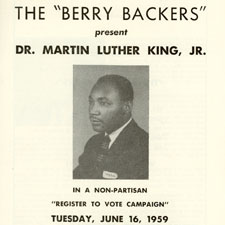 Maysville, Kentucky ran a very nice article about Berry, based in large part on the website that was created for the grant project. Written for the newspaper by Marla Toncray, the article was picked up by Dawn Fuller in UC’s Public Information office.
Maysville, Kentucky ran a very nice article about Berry, based in large part on the website that was created for the grant project. Written for the newspaper by Marla Toncray, the article was picked up by Dawn Fuller in UC’s Public Information office.
We invite you to have a look at the article at http://maysville-online.com/news/local/theodore-m-berry-rise-from-poverty-to-politics/article_867ef0e1-2ebe-5c1c-91c1-ed3a399a37f4.html. To learn more about ARB’s holdings, please go to http://www.libraries.uc.edu/libraries/arb/index.html, call us at 513.556.1959, or email us at archives@ucmail.uc.edu.
Celebrating the Theodore M. Berry Project
By Kevin Grace
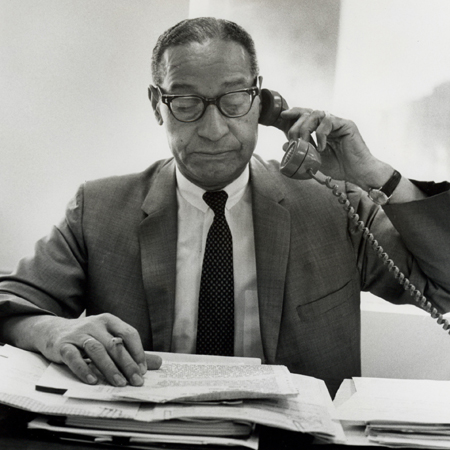 Yesterday evening a special event celebrated the processing of the Theodore M. Berry Papers. Hosted by the Office of the President, UC Libraries, UC College of Law, UC Alumni Association, and the UC Foundation, the gathering attracted over a hundred people to recognize the outstanding contributions of civil rights leader Berry to his alma mater, his community and his nation. Theodore “Ted” Berry (1905-2000) was the first African American mayor in Cincinnati, served the Lyndon Baines Johnson presidential administration in civil rights programs, and was an active attorney for the NAACP. The Berry papers, acquired by the UC Libraries many years ago, were able to be fully processed through a grant from the National Historical Publications and Records Commission of the National Archives. The materials are now available for research and teaching. Continue reading
Yesterday evening a special event celebrated the processing of the Theodore M. Berry Papers. Hosted by the Office of the President, UC Libraries, UC College of Law, UC Alumni Association, and the UC Foundation, the gathering attracted over a hundred people to recognize the outstanding contributions of civil rights leader Berry to his alma mater, his community and his nation. Theodore “Ted” Berry (1905-2000) was the first African American mayor in Cincinnati, served the Lyndon Baines Johnson presidential administration in civil rights programs, and was an active attorney for the NAACP. The Berry papers, acquired by the UC Libraries many years ago, were able to be fully processed through a grant from the National Historical Publications and Records Commission of the National Archives. The materials are now available for research and teaching. Continue reading
T. M. Berry Project: A Fond Farewell
By Laura Laugle
It’s been just over a year since I began working with the Theodore M. Berry papers and in that time this collection has become a part of me in a way I never guessed it would. I have learned about 20th century American history and the black experience in a way that no history book or classroom setting could ever duplicate; I have gotten an insider’s look at the US government during the civil rights movement; and I have come to know a man whom I never had the opportunity to meet but whom I greatly admire. This will be my last blog post for this project and, though I am sad to be leaving, I know that this collection will always be with me in its contribution to my education and understanding of the world. Continue reading
T. M. Berry Project: Fred Shuttlesworth
By Laura Laugle
For many people familiar with the American Civil Rights Movement, the recent death of Fred Shuttlesworth marks the end of an era. Shuttlesworth was the last surviving member of “The Big Three” a descriptor for the three founding members of the Southern Christian Leadership Conference, Rev. Dr. Martin Luther King, Rev. Ralph Abernathy and Rev. Fred Shuttlesworth.
Though Shuttlesworth is predominately known for his work in Birmingham, Alabama, he actually lived much of his life right here in Cincinnati. He moved here in 1961 to take a position as pastor at Revelation Baptist Church and met the Berry family when he moved into their former home on North Crescent Ave. Although he continued his involvement in the Civil Rights Movement mostly through his work with the Southern Christian Leadership Conference in Alabama, he did have a few special projects going in the which city he called home until his retirement in 2007 which would have been important to Ted Berry, particularly later in their careers. Continue reading
T. M. Berry Project: The New Horizon
By Laura Laugle
Now that the physical processing of the Berry collection is complete and I’ve begun arranging materials, I’ve come across some items which, when I processed them months and months ago, I was too ignorant of their context to fully appreciate. Chief among those items are three copies of The New Horizon. I had no idea when I pulled out the rusty staples, pried off the bits of rapidly disintegrating paperclips and filed them temporarily (read: labeled with a removable sticky note) as “Misc. Copies of New Horizon” how incredibly important these school papers really are. Continue reading
T. M. Berry Project: Progress Report
By Laura Laugle
A total of 223 boxes of the Theodore M. Berry Manuscript Collection have now been processed, leaving just six remaining. In the final collection there will be approximately 180 linear feet with around 475,000 total documents and about 1,000 photographs dating from the 1910s though 2000. The inventory in progress includes a detailed list of the titles and contents of folders, along with series and sub-series for the boxes in which each of the folders is stored. This list will be used for a final Encoded Archival Description finding aid that will be available on OhioLINK and the Internet for researchers using the collection. The completion date for the project is set for February 2012. Continue reading
T. M. Berry Project: Proportional Representation in Cincinnati
By Laura Laugle
A large part of Theodore M. Berry’s work in obtaining equality for African Americans in Ohio and especially in Cincinnati centered on the electoral process. The “Berry Backers” frequently ran “Get out the Vote” type events throughout the 1940s and 1950s, using the lure of bowling tournaments and visiting speakers like Dr. Martin Luther King, Jr. to encourage blacks to work with the systems in place and become involved in the political process. It should then come as no surprise that Berry spent many years fighting for what he believed to be the fairest system of voting – proportional representation.
T. M. Berry Project: An Update on the Tuskegee Airmen Court Martial of 1945
By Laura Laugle
I recently came across a transcription of a deposition which Theodore M. Berry gave after being subpoenaed for the school desegregation case Bronson v. Board of Education of Cincinnati. During that deposition and much to Berry’s annoyance at what he called the “terrific waste” of everyone’s time and money, lawyers from all sides of the case had Berry go into great detail about many aspects of his life. He told of his time at the Stowe School, he told of his work as a young lawyer and he told of the Tuskegee Airman case.
“There were occasions in the early days during the period of Thurgood Marshall, when he was the special counsel, this goes back before the war, when I have been consulted, but never was a counsel of record in any case, except a very celebrated court-martial, in which I served as chief counsel in representation of a group of Negro officers who were being court-martialed because they protested against the segregated officers’ quarters. I was chief counsel, Lieutenant William T. Coleman, who more recently was Secretary of Transportation, was military counsel associated with me, and one of the defendants who were acquitted became one of the first black Air Force generals, General Chappie Jones (James), he was one of the officers. He later acknowledged had he not been acquitted at that court-martial, he might not have become a general.” Continue reading
T. M. Berry Project: Civil Rights in Ohio
By Laura Laugle
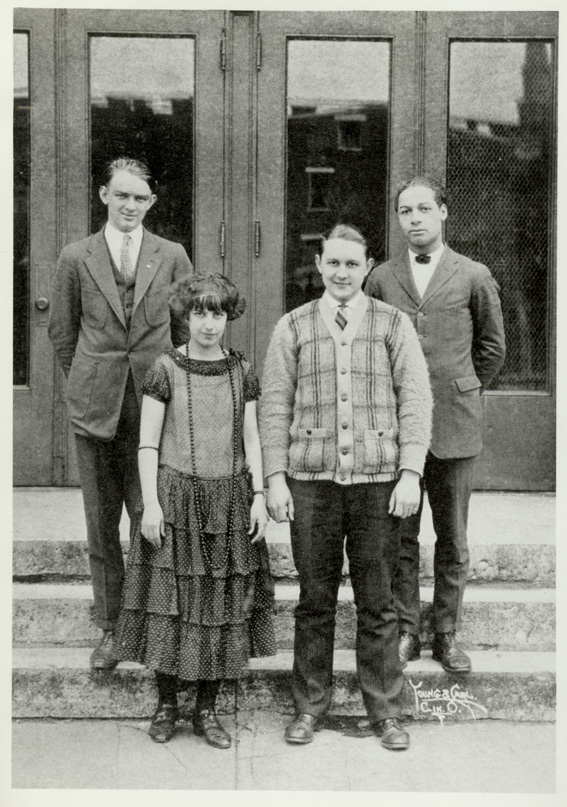
Theodore M. Berry with his Woodward High oration competitors Charlotte Lightfield, Nelson Murphy, and Aston Welsh, 1924
For those readers who have kept up at all with these blog posts, it will come as no surprise that Theodore M. Berry played a major role in aiding the civil rights movement in Ohio, and more particularly in Greater Cincinnati. What may be surprising to those who don’t know much about his life, though, is the way he went about it – firmly but politely and, most importantly, effectively. This was and continues to be, in this archivist’s humble opinion, one of his greatest contributions to the cause. For many people who were not witness to “the civil rights movement,” that term conjures images of the race riots which took place in Avondale, Detroit, and Watts during the 1960s, or of militant Black Panthers like those depicted in the film Forrest Gump. Berry, however, took a very different tack right from the start, believing the only way to extinguish the fire of discrimination would be to invalidate the prevailing stereotypes about African Americans which fed its flames. Well before he ever had the idea of becoming a city councilman, a personal liaison for a United States presidential candidate, or the director of a federal agency, Berry simply strove to be the best that he possibly could be. He broke down a number of walls in doing so.

